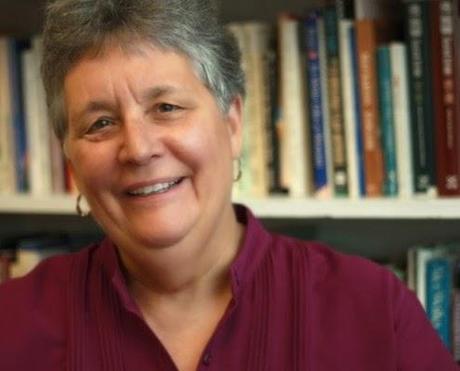
As with everything theologian Mary Hunt writes, her take on the recent synod on the family is excellent. As she says, she understands why so many people both inside and outside the Catholic church had hoped that this event might show a willingness of the leaders of the church to be dragged "kicking and screaming into the 21st century." But:
As it turned out, the final wording was pretty much the same old same old: deeply entrenched anti-body, anti-women ideas that give institutional Catholicism its well-deserved reputation as an unwelcome place for all but the most rigidly observant.
As for the much-vaunted change in tone many media interpreters have told us the synod documents may portend:
Changes in tone are no substitute for changes in substance. It is as if instead of saying, "Go to hell," one were to say "Have a lovely, safe trip to your eternal damnation."
What's clearly needed, Hunt suggests, and what did not take place at this synod and probably will not take place when the synod enters its final stage of deliberations in October 2015, is the straightforward acknowledgment of the reality of the actual familial lives of Catholics around the world, a new reality that it appears many pastoral leaders of the church are unwilling and unable to acknowledge:
Change requires both new ideas and new methods; one without the other will not get the job done. All the Tweets in the world are no substitute for straightforward acknowledgement of a new reality. Alas, that did not happen and is unlikely to happen in a year.
Let’s belabor the obvious. The 180 or so voting members of the assembly were all male and celibate; none of them have been more than sons, brothers, or cousins in families. They have never been husbands, partners, or fathers who assume adult responsibility. It is one thing to go home to Mom’s for Easter dinner like a good boy priest, quite another to invite the guests, buy the food, cook the meal, entertain, and do the dishes as an adult member of a family.
As Hunt insists,
Until this unworkable model of church is upended, until those most affected have voice and vote in decision-making, many Catholic groups see no possibility of institutional change. I concur.
In the final analysis, what may be most concerning of all about the non-representative, non-reality-oriented way in which the pastoral leaders of the Catholic church continue to do their business as they lead the church is that this way of doing business colossaly forfeits more credibility. People are simply not listening, as the leaders of the church deliver pronouncements about family life while ignoring the lived, graced experience of the Christian people to whom they deliver their pronouncements. And when it would make a world of difference for the leaders of this worldwide Christian community to speak out on critically important issues in the world today, they have nothing to say, nothing credible to say, because they've forfeited moral crediblity through their niggling approach to the only issues that appear to occupy their attention, the pelvic ones:
Dear God, what crumbs they quibble over and fall on their croziers to defend. Have they missed the fact that the worldwide pedophilia crimes and cover-up on their watch have left them without a fig leaf of credibility? No wonder no one looks to them to be helpful about the moral issues at stake in Ebola, terrorism, or environmental threats.
And so it goes. Mary Hunt's take on what just happened at the synod on the family seems to me right on target — and more's the pity, given what's at stake and the opportunity for constructive dialog and constructive change that have just gone down the drain.
The photo of Mary Hunt is from her WATER website — Women's Alliance for Theology, Ethics and Ritual.

